John Myrtle[1]
‘Observing journalism for 80 years: The Arthur Norman Smith Lecture in Journalism’, Honest History, 18 August 2017 updated
Introduction
There are three parts to this paper:
- an introduction to Arthur Norman Smith and the endowed Arthur Norman Smith Lecture in Journalism;
- consideration of an intervention in 1957 and 1958 by the Australian Journalists’ Association seeking to influence the direction of the endowment; and
- a list of the lectures (with lecturers) from the foundation lecture in 1936 to the present day.
The Arthur Norman Smith lectureship has a unique place in Australia’s cultural history: during the past 80 years the lectureship has evolved from consideration of issues of journalism to broader issues of mass media in Australia. In compiling the list of the AN Smith lectures I have consulted a wide range of sources including archives, library catalogues, newspapers and various online resources. There are gaps in the list and I would appreciate feedback on errors and omissions, particularly in relation to the titles of lectures, the names of lecturers, and the dates of lectures.
Thanks to David Stephens of Honest History, Maggie Shapley and the staff of the Noel Butlin Archive at the Australian National University (ANU), and the staff of the University of Melbourne Archives for assistance in compiling this paper.
John Myrtle
Email: myrtle@webone.com.au
243 Beasley Street, Mawson ACT 2607
_________________________________
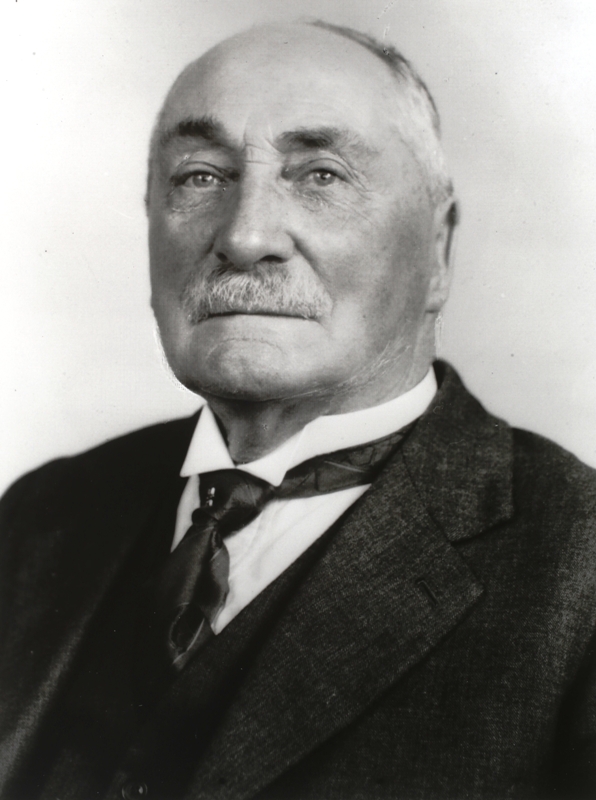
AN Smith 1862-1935 (Federal Parliamentary Press Gallery)
Arthur Norman Smith
Arthur Norman Smith, one of the founders of the Australian Journalists Association (AJA), died on 15 July 1935. Following his death his family presented £200 to the University of Melbourne to endow an ‘Arthur Norman Smith Lecture in Journalism’.
Smith was born in London on 24 July 1862. He came to Australia as a young man, working his passage in a sailing ship. He was editor and part-owner of a suburban newspaper in Hawthorn, Victoria, from 1890 to 1897. In the latter part of the 19th century the movement for the federation of the colonies was growing and Arthur Smith had specialised in political reporting. He represented Reuters and his own agency at the conventions of the late 1890s which preceded Federation, and he attended all sittings of the Commonwealth Parliament in Melbourne from 1901 to 1927. He was active in local politics and was a member of Hawthorn Council from 1893 to 1901, including a term as mayor in 1898-1899. He was the first general president of the AJA (1910), its general secretary for five years, and holder of the AJA’s Gold Badge No. 2.
Clem Lloyd noted in Profession: Journalist: A History of the Australian Journalists’ Association that Arthur Smith as a journalist also ran his own press agency and was therefore negotiating improved pay and conditions that would cover journalists who were working for his own agency. Smith’s publications included A History of Hawthorn to 1895, and Thirty Years: The Commonwealth of Australia, 1901-31. The latter book was praised by Harry Gordon, the 1976 Arthur Norman Smith lecturer, as a work that displayed ‘[Smith’s] lively wit, his perception, his lucidity and his remarkable ability to be somehow detached and involved at the same time…’
The Australian Journalists’ Association
The Arthur Norman Smith Lecture endowment for the University of Melbourne would focus on subjects connected with journalism, with control of the endowment being placed with the University’s Diploma of Journalism committee (later known as the Board of Studies in Journalism). Each year’s lecturer was appointed by the University’s Council on the recommendation of the Board of Studies committee.
The Australian Journalists Association at a federal level did not provide financial support for the Arthur Norman Smith Lecture endowment; the main contribution of the union to the endowment came from the involvement of the Victoria District of the AJA with the Board of Studies in Journalism committee. Each year three members were nominated for the committee by the AJA’s Victoria District.
In December 1957, the Federal Council of the AJA sought to influence the approach of these Victorian members to the lectureship. The Council wrote to the Victoria District committee seeking to instruct the three representatives on the Board of Studies in Journalism ‘that the A.J.A.’s view is that the A.N. Smith Memorial Lecture should not be used to disseminate views contrary to A.J.A. policy’. As a consequence, the Secretary of the Victoria District conveyed this communication to the three representatives who in turn responded in an emphatic fashion, either resigning or querying the reasons for the federal move. Ironically, one of the three, Geoffrey Tebbutt of the Melbourne Herald, had previously been closely involved with the Arthur Norman Smith lectureship; as a war correspondent he had delivered the 1941 lecture.
In the light of the reaction from the three representatives, the committee of the Victoria District resolved to circulate a report and copies of letters received on the issue to all other Districts and to the Federal Executive, and advised that Victorian delegates at a special meeting of Federal Council scheduled for 14 April 1958, ‘move as a matter of urgent business that the decision of Annual Council on the matter of A.N. Smith Lectures be reviewed …’
Most members of the AJA would have first become aware of this issue with publication of a short note in the December 1957 issue of the AJA’s monthly Journalist newspaper:
Council expressed concern that lectures given as A. N. Smith Memorial Lectures often contained material which expressed policy contrary to AJA views.
Victoria District was instructed to inform the three representatives on the Board of Studies of Federal Executive’s view that the A. N. Smith Memorial Lecture should not be used to disseminate views contrary to AJA policy.
This edict drew a quick response in the March 1958 issue of The Journalist. The response was headed ‘Censorship’ in a column ‘Deadline’, by ‘Observer’, a senior metropolitan journalist. The columnist wrote:
While in a critical mood, I would like to say that I felt disgusted at the childish action of the AJA annual council decision on Melbourne’s annual A. N. Smith Memorial Lecture … What a highhanded action! What a lot of hokus-pokus! A decision like that from men who regard themselves as enlightened. It smacks of the very censorship we so strongly oppose.
I believe the decision followed the mention of syndication by the speaker at last year’s lecture. Of course AJA policy is opposed to syndication. But surely we are men enough to listen to an opposite point of view.
 John Douglas Pringle’s Australian Accent (1958), a pioneering work on Australian culture
John Douglas Pringle’s Australian Accent (1958), a pioneering work on Australian culture
It transpired that the intervention by the Federal Council of the AJA had been a response to the Arthur Norman Smith lecture of 13 June 1957 by the editor of the Sydney Morning Herald, John Douglas Pringle. According to the account received by the AJA’s Federal Executive, Pringle had ‘advocated the setting up of a Press Agency in Australia similar to those operating in Britain and the United States’. He had ‘painted a gloomy picture for the future of daily newspapers in view of rising costs of production, and said he could not see a new daily newspaper starting in Australia for the next 10 or 20 years unless there was a substantial reduction in costs’.
What was not mentioned in this commentary on Pringle’s lecture was that 1957 had been a particularly difficult year for the AJA and for the Australian newspaper industry generally. Specifically, on 19 January 1957 the long-running Argus newspaper in Melbourne ceased publication. Confronted with Pringle’s advocacy of the need for ‘substantial reduction in costs’ and possible cuts in newspaper production, it is no surprise that the AJA would express concern, even alarm. For AJA members (and other unionists) a reduction in the costs of production would equate with further cuts in employment.
In spite of these concerns, it soon became clear that the ‘shoot the messenger’ response of the AJA’s Executive and Council was inappropriate. First, as was made clear in commentary in the March 1958 issue of The Journalist, there were members of the AJA who viewed their union’s response as censorship. Secondly, the Victorian AJA members directly involved in management of the Arthur Norman Smith lecture and selection of lecturers were affronted at the union’s intervention; and finally there was no practical means by which the AJA could direct the views disseminated in the annual lectures.
Faced with the opposition to their ‘censorship’ motion, the AJA reversed its previous stance. A special meeting of the Federal Council on 14 April 1958 decided ‘that the General Secretary inform the representatives of the Victoria District on the Board of Studies that the decision of Annual Federal Council on A. N. Smith Memorial Lectures was designed merely as an expression of feeling and not as any instruction to them on their work on the Board of Studies and that they have Council’s assurance that the A.J.A. is strongly opposed to any form of censorship’.
When the dust had settled with this issue, it is noteworthy that at a regular meeting of the Victoria District committee in May 1958 the three AJA representatives, Geoffrey Tebbutt, AL Phillips and A. Nicholls were all re-appointed to the University’s Board of Studies in Journalism. Later, a meeting of the AJA’s Federal Executive on 5 May 1958 acknowledged receipt of a letter from Geoffrey Tebbutt who wrote: ‘I still regret that Council, even as an “expression of feeling”, should wish to bring the views of these lecturers into line with A.J.A. policy. However, I am relieved to find that this does not now amount to an instruction to Victoria District representatives on the Board of Studies …’ Tebbutt would continue to serve as an AJA representative on the Board for 12 years, before resigning in September 1966.
A very different type of political issue arose in the 1974 Arthur Norman Smith Lecture, delivered by Graham Perkin, editor-in-chief of The Age. In his wide-ranging lecture on the issues confronting an editor of a major daily newspaper, Perkin expressed his concern at an issue of credibility affecting his newspaper. Specifically, he indicated his displeasure at the approach of The Age columnist Bruce Grant, a distinguished journalist and commentator who, as it happened, had presented the Smith lecture in 1958.
Perkin maintained that in the lead-up to the 1972 general election Bruce Grant as a columnist had ‘seriously comprised the political detachment and … independence of view’ of The Age. In the latter part of 1972, Grant had assisted a group of non-party prominent Australians in drafting a statement advocating support for a change in government. In the words of Perkin, ‘How could I, at that moment, demonstrate to my readers that Mr Grant had indeed been an independent columnist? I suspended his column on the eve of the election. He never wrote for The Age again.’
Shortly after the election the new government announced Bruce Grant’s appointment as Australia’s High Commissioner to India. Sadly, Graham Perkin was to die unexpectedly in 1975. Many years later in his memoirs, Subtle Moments: Scenes on a Life’s Journey (2017), Grant would contest the version of events presented by Perkin in his 1974 lecture: ‘I continued to write through the election campaign in November and December [1972] until I took holidays at the end of the year’. Grant was not able to take up his diplomatic appointment until September of the following year and, in the intervening period, Ranald Macdonald, managing director of The Age, continued to employ Bruce Grant onlecture tours of schools on the theme ‘Australia’s new foreign policy’.
Overall, the Arthur Norman Smith Lecture in Journalism endowment has prospered and, 80 years after the initial lecture, the series continues to provide important commentary and ideas on mass media in Australia. Many of the issues persist today.
The Lectures
1936 Sir Edward Cunningham
The Victorian Press – a survey
The first Arthur Norman Smith Memorial Lecture in Journalism was delivered on 30 March 1936 at the University of Melbourne by Sir Edward Cunningham. Cunningham was Chairman of the Council of Management of The Argus, and editor of The Argus from 1906 to 1928.
1937 C Hartley (Clinton Hartley) Grattan
Responsibilities of a journalist today
The 2nd Arthur Norman Smith Lecture, 7 October 1937
C Hartley Grattan was an American journalist, author and historian who during his life made a number of study tours to Australia. At the time of the 1937 lecture he was a visiting Carnegie Fellow.
1938 Leonard Vivian Biggs
Ancient and modern editing
The 3rd Arthur Norman Smith Lecture, 10 October 1938
Biggs was editor of The Age.
1939 Hugh Grant Adam
Modern problems of the Press
The 4th Arthur Norman Smith Lecture, 1 August 1939
Adam was deputy editor-in-chief of The Herald (Melbourne).
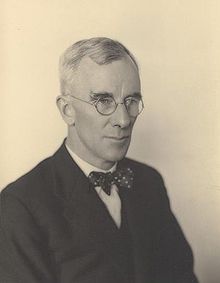 Sir Henry Gullett (Wikipedia)
Sir Henry Gullett (Wikipedia)
1940 Sir Henry Gullett
Journalism in war time
The 5th Arthur Norman Smith Lecture, 29 July 1940
Gullett had been a journalist and was a member of the Menzies Ministry. Two weeks after delivering the lecture he was killed in the Canberra air disaster in which the aircraft crew and all six passengers lost their lives.
1941 Geoffrey Tebbutt
Journalism under fire
The 6th Arthur Norman Smith Lecture, 28 July 1941
Tebbutt was a war correspondent in World War II. After the war, he returned to Australia and worked for the Melbourne Herald as a leader writer, features editor and Australian correspondent for the Manchester Guardian.
1942 C. Yates McDaniel
Can the free press survive the Second World War?
The 7th Arthur Norman Smith Lecture, 13 July 1942
McDaniel was chief of the Australian Bureau of the Associated Press of America.
1943 John Hetherington
The 8th Arthur Norman Smith Lecture, 25 August 1943
Originally scheduled for 26 July, the lecture was postponed because of Hetherington’s absence from Melbourne. In April 1943 Gavin Long had been announced as the 1943 lecturer, but he declined the offer when he was appointed as Australia’s official war historian.
1944 No lecture
1945 Sydney H. Deamer
The critical function of journalism
The 9th Arthur Norman Smith Lecture, 8 October 1945
Deamer was associate editor of the Daily Telegraph (Sydney) and former editor of the ABC Weekly.
1946 Allan Wesley Dawes
Caesar’s ghost: the journalist, the statesman, the spokesman
The 10th Arthur Norman Smith Lecture, 9 July 1946
Dawes was one of the original members of Canberra’s Parliamentary Press Gallery. In the summary of his lecture he indicated that publicity work, particularly political publicity and public relations, offered a legitimate calling.
1947 Stanley Gordon William Horniblow
Can there be a perfect newspaper?
The 11th Arthur Norman Smith Lecture, 11 August 1947
Stanley Horniblow was editor-in-chief of the London Daily Mail.
1948 Peter Vasquez Russo
Honourable information
12th Arthur Norman Smith Lecture, 2 August 1948
‘Dr Peter Russo … drew attention to “a host of talented amateurs”, who, he thought, had become foreign correspondents without adequate training, and who, while colourful, talked “more often than not raging nonsense” if judged as informative reporters’ (Henry Mayer, The Press in Australia). Peter Russo was a leading journalist, commentator and educator. The authors of Russo’s profile in the Australian Dictionary of Biography confirmed that ‘Russo’s real obsession was the deficiencies of foreign affairs journalism’.
1949 Eric Kennedy
[On the qualities and qualifications of journalists]
The 13th Arthur Norman Smith Lecture, 11 October 1949
Kennedy was chief executive officer, Associated Newspapers Ltd; he spoke on the need for a better understanding between employers and employees.
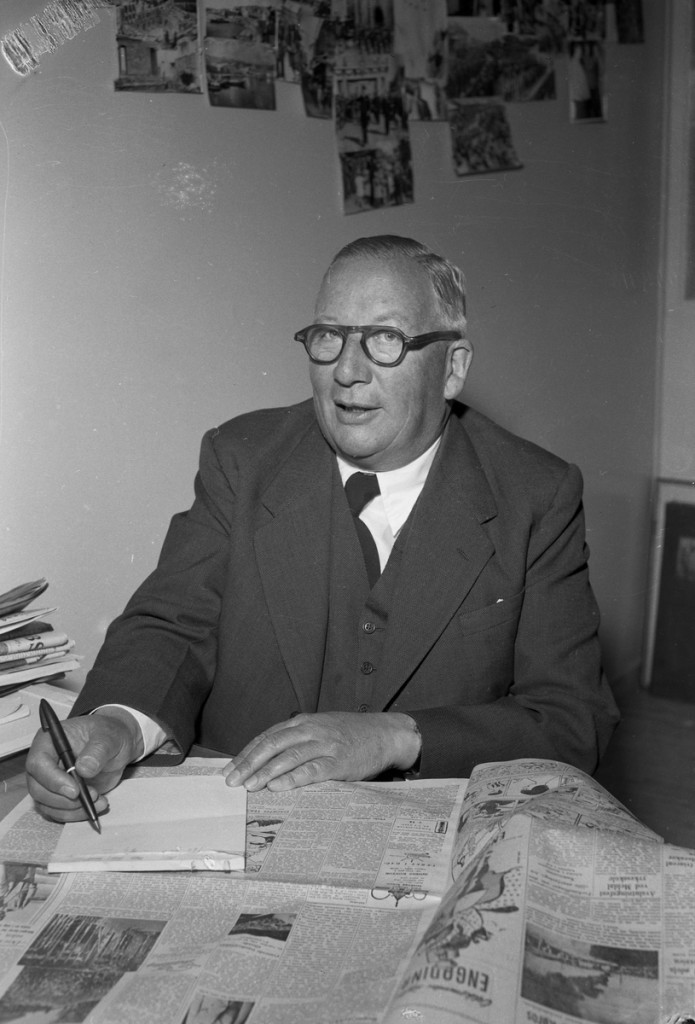 Sir Lloyd Dumas (digitaltmuseum)
Sir Lloyd Dumas (digitaltmuseum)
1950 Sir Lloyd Dumas
The newspaper of the future
The 14th Arthur Norman Smith Lecture, 12 October 1950
Lloyd Dumas, President of the Australian Newspaper Council and chairman of directors of Advertiser Newspapers Ltd, was one of the founders of the Australian Journalists’ Association in South Australia. He indicated that he would be donating his £15/15/- speaker’s fee to AJA’s South Australian District benevolent fund.
1951 Sir John Medley
Should journalists be educated?
The 15th Arthur Norman Smith Lecture, 21 September 1951
Medley had recently retired as vice-chancellor of the University of Melbourne.
1952 Edward William Tipping
The Nieman experiment and trends in American journalism
The 16th Arthur Norman Smith Lecture, 18 September 1952
Edmond William (Bill) Tipping was a Melbourne-based journalist, social commentator and activist. In 1951 he had been awarded a Nieman fellowship in journalism at Harvard University.
1953 James Edward Macartney
Great Britain in the modern world
The 17th Arthur Norman Smith Lecture, 21 September 1953
Macartney was managing editor of Western Australian Newspapers Ltd.
1954 Angus H. McLachlan
Readability and responsibility [alternative title: Recent trends in news presentation]
The 18th Arthur Norman Smith Lecture, 27 October 1954
McLachlan was general manager of the Sydney Morning Herald and as a political journalist he had been an original member of Canberra’s Parliamentary Press Gallery. ‘Mr McLachlan said comic strips were trivial but essential matter in a modern newspaper’ (The Age, 28 October 1954).
1955 No lecture
1956 Keith S. Cairns
Television and journalism [alternative title: Television and the press]
The 19th Arthur Norman Smith Lecture, 1 May 1956
Kevin Cairns was manager of Melbourne’s Herald-Sun TV Pty Ltd. HSV was the first television station to broadcast to viewers in Melbourne (4 November 1956).
1957 John Douglas Pringle
Newspapers and intellectuals
The 20th Arthur Norman Smith Lecture, 13 June 1957
Pringle was editor of the Sydney Morning Herald. He had already submitted his resignation and he returned to England at the end of 1957.
1958 Bruce Alexander Grant
All the views fit to print
The 21st Arthur Norman Smith Lecture, 29 July 1958
Bruce Grant was a journalist and foreign correspondent. He had been previously been awarded a Nieman fellowship in journalism at Harvard University.
 Arthur Calwell (Wikipedia)
Arthur Calwell (Wikipedia)
1959 Arthur Calwell
The Australian Labor Party and the press
The 22nd Arthur Norman Smith Lecture, 30 July 1959
Arthur Calwell was federal leader of the Labor Party.
1960 Geoffrey Hutton
The newspaper as critic
The 23rd Arthur Norman Smith Lecture, 11 October 1960
Geoffrey Hutton was drama critic of The Age.
1961 Tom Fitzgerald
A financial editor comments
The 24th Arthur Norman Smith Lecture, delivered in 1961
Fitzgerald was financial editor of the Sydney Morning Herald from 1952 to 1970, and owner and editor of Nation magazine from 1958 to 1972.
1962 John Bennetts
Press, parliament and public interest
The 25th Arthur Norman Smith Lecture, 15 October 1962
John Bennetts, a political journalist, was Canberra correspondent for The Age.
1963 Stewart Harris
Independent editors: are they really necessary?
The 26th Arthur Norman Smith Lecture, 1 October1963
Stewart Harris was the Australian correspondent for The Times (London). The Journalist (AJA), December 1963, included a detailed report of Harris’s lecture.
1964 Douglas Gillison
A reporter looks at his trade
The 27th Arthur Norman Smith Lecture, 6 October 1964
Douglas Gillison was an Australian journalist and writer.
1965 Sir James Plimsoll
Asian issues in the Australian press
The 28th Arthur Norman Smith Lecture, 23 November 1965
Sir James Plimsoll was Secretary of the Department of External Affairs.
1966 W. Sprague Holden
The impossible commitment
The 29th Arthur Norman Smith Lecture, 13 September 1966
Holden was chairman, Department of Journalism, Wayne State University, Michigan, USA. In 1956-57 he spent 13 months in Australia funded by a Fulbright grant.
1967 Lecture unlikely; note numbering of 1966 and 1968 lectures
1968 Walter Stuart Francis Hamilton
The information jungle
The 30th Arthur Norman Smith Lecture, 17 September 1968
Hamilton was Assistant General Manager of the Australian Broadcasting Commission; prior to the ABC he had worked as a journalist with the Sydney Sun for more than twenty years.
1969
1970 Joyce Belfrage
Mass media maketh the man
The Arthur Norman Smith Lecture, 26 November 1970
British-born Joyce Belfrage was a lecturer in media at Macquarie University.
1971 Adrian Deamer
Can a national newspaper work?
The Arthur Norman Smith Lecture, 11 November 1971
Deamer, editor of The Australian, had left the newspaper in July 1971 after a disagreement with publisher Rupert Murdoch. A report on the lecture, ‘Problems of a national paper’, was published in the Sydney Morning Herald, 12 November 1971.
1972 Rupert Murdoch
Publishing newspapers in the seventies
The Arthur Norman Smith Lecture, 15 November 1972
Murdoch, managing director of News Ltd, used the lecture to express his opposition to a press council in Australia. A report on the lecture, ‘Idea of press council opposed by Murdoch’, was published in the Sydney Morning Herald, 16th November 1972.
1973 Douglas McClelland
Creating an Australian awareness
The Arthur Norman Smith Lecture, 26 October 1973
McClelland was Minister for the Media in the Whitlam Labor Government.
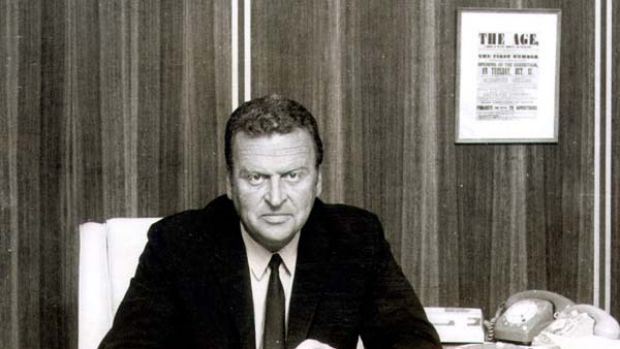 Graham Perkin 1929-75 (Fairfax)
Graham Perkin 1929-75 (Fairfax)
1974 Graham Perkin
Carry on the hoo-ha
The Arthur Norman Smith Lecture, 20 September 1974
Perkin was editor-in-chief of The Age. His paper was published in New Accent, 28 September 1974, pp. 17-20
1975 William Macmahon Ball
The government and the media
The Arthur Norman Smith Lecture, 29 October 1975
Macmahon Ball was emeritus professor of political science at the University of Melbourne. From 1954 to his retirement he had been chairman of the University’s Board of Studies in Journalism. In the introduction to his lecture Ball paid tribute to the previous year’s lecturer, Graeme Perkin, who had died suddenly on 16 October 1975.
1976 Harry Gordon
Newspapers: change and challenge
The 1976 Arthur Norman Smith Lecture, 10 November 1976
Harry Gordon was Executive Editor of the Herald and Weekly Times. ‘I want to put to you a proposition that is neither startling nor profound. In fact it is very simple. It is this: newspapers are in the business of recording and reflecting change in a world which changes wildly and constantly – but newspapers themselves have shown an extraordinary disinclination to change. Our methods of recording and reflecting the change that is all around us have altered very little over the years.’
1977 Max Suich
Changes in Australian journalism
The 1977 Arthur Norman Smith Lecture
Suich was editor of The National Times (John Fairfax and Sons).
1978 Sir Frank Kitto
The Press Council and the future
The 1978 Arthur Norman Smith Lecture
Sir Frank Kitto, a former justice of the High Court of Australia, was appointed chairman at the inception of the Australian Press Council. He served in this position from 1976 to 1982.
1979
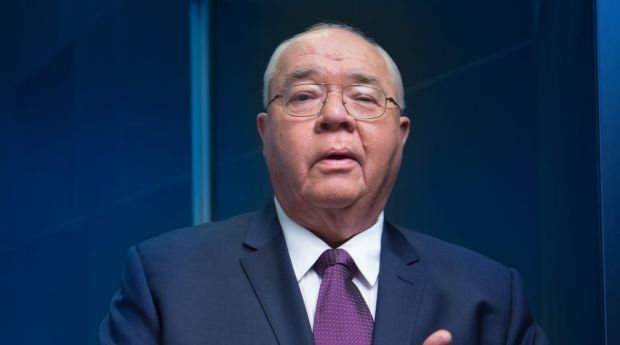 Laurie Oakes (Fairfax)
Laurie Oakes (Fairfax)
1980 Laurie Oakes
Arthur Norman Smith Memorial Lecture in Journalism
The Arthur Norman Smith Lecture, 19 November 1980
Laurie Oakes is a political journalist and media commentator who worked in the Canberra Press Gallery for many years and recently retired. His lecture was reported in the Sun-Herald, 23 November 1980.
1981 John Arnold Timothy Morgan
Pressing problems: challenge to the press in the communication revolution
The 1981 Arthur Norman Smith Lecture
Morgan was an executive of the Herald and Weekly Times.
1982 Sir Larry Lamb
Why newspapers are alive and well
The Arthur Norman Smith Lecture, late 1982
Lamb was a British-born journalist who edited The Australian in 1982. An abridged version of the lecture was published in The Australian, 4-5 December 1982, p. 4.
1983 John Lawrence
Professional issues and the A.J.A.
The Arthur Norman Smith Lecture, 6 October 1983
Lawrence was the Federal President of the Australian Journalists’ Association. An edited version of his lecture, ‘Principals without Principles’, was published in The Journalist (AJA), November 1983, pp. 5-6.
1984 Brian White
Arthur Norman Smith Memorial Lecture on Journalism
The 1984 Arthur Norman Smith Lecture
On contemporary Australian journalism.
1985 Neal Swancott
Australian journalists in the international community
The 1985 Arthur Norman Smith Lecture
Swancott was General Secretary of the Australian Journalists’ Association.
1986 Mr Justice Douglas Gerald Stewart
Privacy and prejudice: law enforcement and the media
The Arthur Norman Smith Lecture, 28 November 1986
Stewart was chairman of the National Crime Authority; his lecture was reported in Sydney Morning Herald, 29 November 1986. ‘In a wide-ranging attack on the media, Justice Stewart said individual freedoms were being infringed as publishers sought to make money out of stories dealing with crime.’
1987 Eric Beecher
Arthur Norman Smith Memorial Lecture in Journalism 1987
The Arthur Norman Smith Lecture, 12 November 1987
On the quality of Australian newspapers; Beecher was a prominent journalist, editor and publisher.
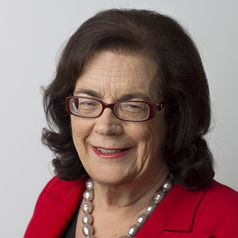 Michelle Grattan (MamaMia)
Michelle Grattan (MamaMia)
1988 Michelle Grattan
Reporting federal politics
The Arthur Norman Smith Lecture, early December 1988
Michelle Grattan was chief political correspondent for The Age. Commentary on her lecture (an article by Max Suich) was published in the Sydney Morning Herald, 13 December 1988. The article indicated that Grattan’s lecture had included strong criticism of Canberra political reporting.
1989 John Jost
From print to electronics
The 1989 Arthur Norman Smith Lecture
In 1989 John Jost was a political journalist in Melbourne with ABC television.
1990
1991 Kim C. Beazley
Navigating new channels
The Arthur Norman Smith Lecture, 25 November 1991
Kim Beazley, Minister for Transport and Communications, indicated that Australians have to break with the mindset of the past that the media is just newspapers and television. His lecture was reported in The Age, 26 November 1991.
1992 Paul Kelly
The challenge facing Australian newspapers
The Arthur Norman Smith Lecture, 12 November 1992
Kelly was editor-in-chief of The Australian; his lecture was reported in The Age, 13 November 1992.
1993 Mary Delahunty
Arthur Norman Smith memorial lecture in journalism
The Arthur Norman Smith Lecture, 24 November 1993
Delahunty was a senior television journalist with the Australian Broadcasting Corporation. She was elected to the Victorian Parliament in 1998 and served in the Bracks Labor ministry from 1998 to 2006.
1994 Richard Walsh
Don’t turn the page yet on the magazine
The Arthur Norman Smith Lecture, 11 October 1994
Walsh was managing director and publisher, Australian Consolidated Press.
1995 Ron Tandberg and Peter Nicholson
The place of cartoons in modern newspapers
The Arthur Norman Smith Lecture, 31 October 1995
Ron Tandberg (The Age) and Peter Nicholson (The Australian), as cartoonists, talking about what they find funny in Australia.
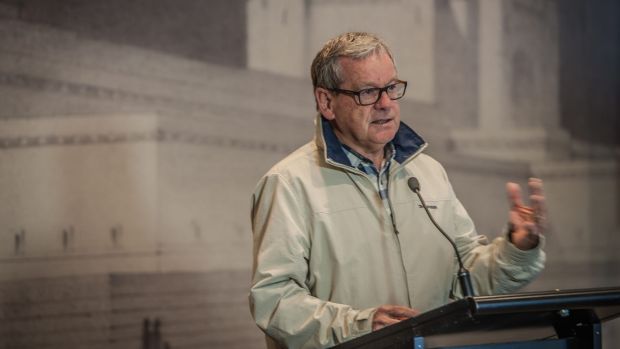 Chris Masters (Canberra Times)
Chris Masters (Canberra Times)
1996 Chris Masters
Death by a thousand cuts
The Arthur Norman Smith Lecture, 23 October 1996
Masters was a senior television journalist with the Australian Broadcasting Corporation’s Four Corners program; his lecture was reported in the Sydney Morning Herald, 24 October 1996.
1997 Steve Harris
Newspapers on the road to where?
The Arthur Norman Smith Lecture, 29 October 1997
Harris was editor-in-chief and publisher of The Age.
1998 Pichai Chuensuksawadi
The South-East Asian Press: its challenges, shortcomings and prospects
The Arthur Norman Smith Lecture, 20 October 1998
The transcript of the lecture by the editor of the Bangkok Post was published in UniNews, 23 October 1998. The lecture was also published in the Bangkok Post, 21 October 1998
1999 Paul Chadwick
The Arthur Norman Smith Lecture, 17 November 1999
Paul Chadwick was a journalist and media law commentator; his lecture was reported in the Australian Financial Review, 3 December 1999.
2000 Maxine McKew
The Arthur Norman Smith Lecture, 30 November 2000
Maxine McKew was a journalist for The Bulletin and for ABC television. She served as a Labor member of Federal Parliament from 2007 to 2010.
2001 Frederick G. Hilmer
The media industry in Australia: public policy issues
The Arthur Norman Smith Lecture, 30 October 2001
Hilmer was chief executive officer of John Fairfax Holdings Ltd. His lecture was reported in both The Age and The Australian (31 October 2001).
2002 Don Watson
Don Watson, historian, screenwriter, essayist and political speechwriter, on speechwriting, and the writing of Recollections of a Bleeding Heart: Portrait of Paul Keating, PM; recorded on 8 June 2002 in conversation with Ramona Koval at the Sydney Writers’ Festival
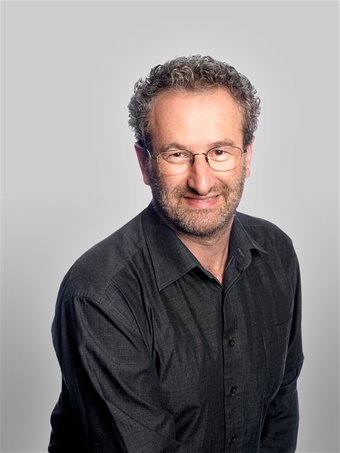 Jon Faine (ABC)
Jon Faine (ABC)
2003 Jon Faine
The Arthur Norman Smith Lecture, 1 April 2003
The lecture by ABC Melbourne Radio’s Jon Faine was reported in The Age, 2 April 2003.
2004
2005 Peter Beattie
Power without responsibility: who guards the guardians?
The Arthur Norman Smith Lecture, 14 December 2005
Beattie was Queensland Premier; his lecture was reported in The Age, 15 December 2005.
2006 EJ Dionne, Jr
Is talk cheap? How commentators, columnists and reporters influence politics
The Arthur Norman Smith Lecture, 23 August 2006
EJ Dionne was an American columnist, commentator and academic.
2007
2008 Michael Gawenda
Do newspapers have a future? And how long is the future?
The Arthur Norman Smith Lecture, 7 October 2008. Transcript.
Gawenda was editor of The Age from 1997 to 2004, and director of Melbourne University’s Centre for Advancing Journalism from 2009.
2009 Mark Scott
The fall of Rome: media after empire
The Arthur Norman Smith Lecture, 14 October 2009. Transcript and video.
Mark Scott was managing director of the Australian Broadcasting Corporation.
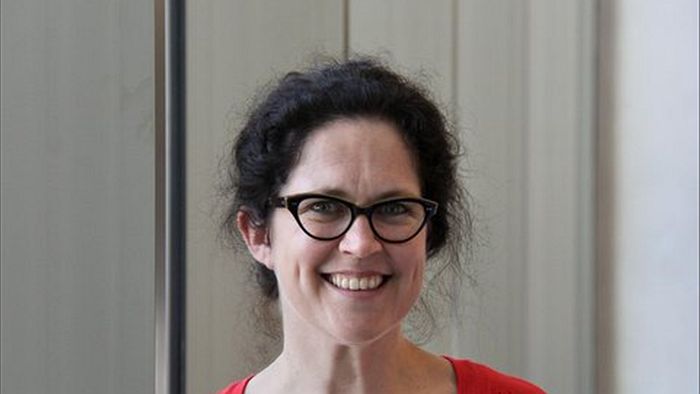 Annabel Crabb (ABC)
Annabel Crabb (ABC)
2010 Annabel Crabb
The end of journalism as we know it – and other good news stories
The Arthur Norman Smith Lecture, 27 October 2010. Transcript and video.
Annabel Crabb was chief political writer with the Australian Broadcasting Corporation.
2011 Greg Hywood
If you ask me about the future of newspapers you have asked the wrong question.
The Arthur Norman Smith Lecture, 15 November 2011. Video.
Hywood is chief executive of Fairfax Media. His lecture was reported in The Australian, 21 November 2011.
2012 Kim Williams
Media futures: media observations through a rather frosty crystal ball
The Arthur Norman Smith Lecture, 4 October 2012. Video and transcript.
Williams was chief executive of News Ltd; his lecture was reported in the Australian Financial Review, 12 October 2012.
2013 Katharine Viner
The rise of the reader: journalism in the age of the open web
The Arthur Norman Smith Lecture, 9 October 2013. Video and transcript.
Katharine Viner was deputy editor of the Guardian and editor-in-chief of Guardian Australia.
2014 Morry Schwartz
The net effect: an optimist in the news business
The Arthur Norman Smith Lecture, 27 November 2014. Video.
Morry Schwartz is a Melbourne-based publisher, including publisher of The Monthly and the Saturday Paper.
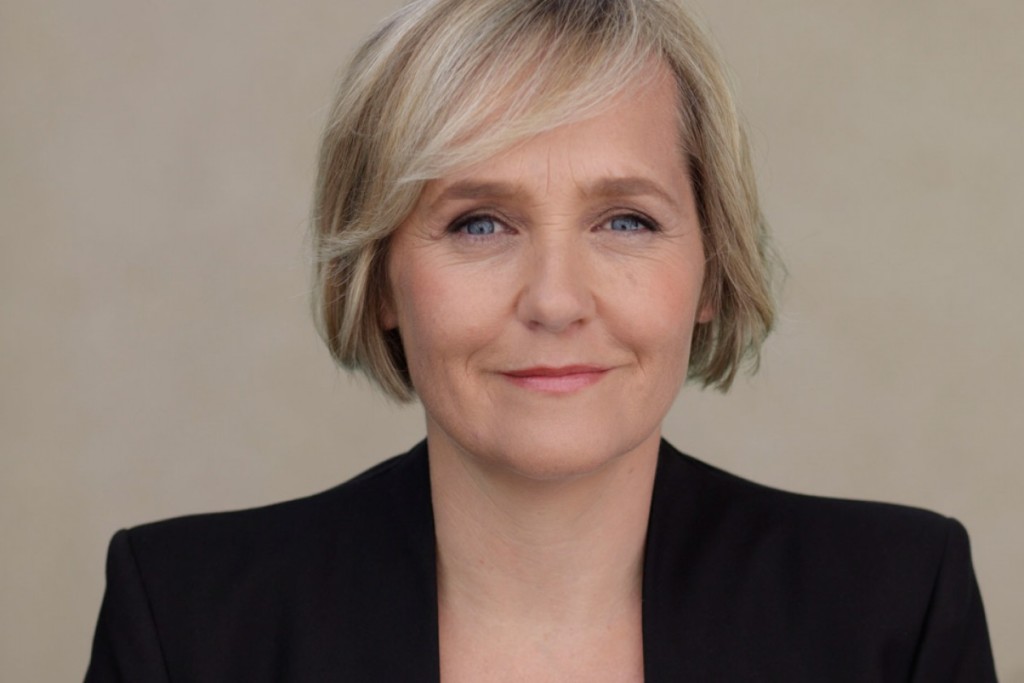 Sarah Ferguson (BandT)
Sarah Ferguson (BandT)
2015 Sarah Ferguson
Freedom from information: Australia’s war on transparency.
The Arthur Norman Smith Lecture, 7 October 2015. Video.
Ferguson is a senior television journalist with the Australian Broadcasting Corporation; a report of her lecture was published in The Australian, 10 October 2015.
2017 Emily Bell
Live and dangerous: journalism and the real-time social web.
The 2017 Arthur Norman Smith Lecture, 17 March 2017. Video.
Emily Bell was the founding director of Columbia University’s highly regarded Tow Center for Digital Journalism and a leading authority on digital journalism. The lecture was rescheduled after being cancelled in October 2016.
2018 Walter Robinson
From the Catholic Church to President Trump – investigative reporting vs. the excesses of power.
The 2018 Arthur Norman Smith Lecture, 30 May 2018. Video. Stan Grant interview with Robinson.
Walter Robinson, editor-at-large of the Boston Globe and leader of the Spotlight Team’s investigations into abuse in the Catholic Church, spoke on the power of investigative journalism against the excesses of power.
2019 Adele Ferguson
The Big Banks: reporting where regulators fear to tread
The 2019 Arthur Norman Smith Lecture, 10 April 2019. Video.
Adele Ferguson, financial journalist for Nine News (Fairfax).
The Royal Commission into the banking industry has demonstrated that regulators have failed us, while the role of protecting the public from corporate greed has often been performed best by journalism. Investigative reporter Adele Ferguson, who many credit as the initiator of the Royal Commission, asks why it is that journalism stepped up while regulation failed? And what can be done to strengthen journalism to ensure it keeps on performing this vital role?
2020 Emma Cowdroy and Jonty Low
Saving the Australian Associated Press: re-making an Australian media institution
The 2020 Arthur Norman Smith Lecture, 12 November 2020. Video
For 85 years the Australian Associated Press has provided coverage on almost all aspects of Australian life and supplied reliable news and information for media outlets across the country. When the consortium of major media companies announced AAP would close in June 2020, AAP looked doomed. But since then there has been an awakening of interest and support; now AAP not only exists but has a renewed mission to tell new kinds of stories, as well as provide an important journal of record coverage. AAP’s new CEO, Emma Cowdroy, and new chairperson, Jonty Low, join in an online panel discussion of how AAP was saved.
2021 Hon. Kevin Rudd AC
Public broadcasting and quality journalism under siege: the case for a Royal Commission
The 2021 Arthur Norman Smith Lecture, 15 July 2021. Video
In his 2021 A.N. Smith lecture, former Prime Minister Kevin Rudd argued our print media is the most concentrated in the democratic world and is dominated by a self-interested Murdoch monopoly that ruthlessly sows disinformation into public debate and intimidates its critics, chilling free speech. But as wealthier Australians flock to defamation courts, ordinary citizens are stonewalled by toothless regulators. And while corruption is on the rise and extremism on the march, the journalistic profession is shrinking – especially in regional communities – as commercial priorities drive newsroom decisions. And that’s just for starters.
2022 Lagipoiva Dr Cherelle Jackson
Va o matagi: climate journalism from the frontlines
The 2022 Arthur Norman Smith Lecture, 21 September 2022. Video
Lagipoiva Dr Cherelle Jackson, Samoan journalist and host of An Impossible Choice by The Guardian, shares her experience covering climate in the Pacific in the context of Australia’s complex relationship with the region. ‘Va o matagi’, which translates as ‘In between storms’, highlights the cultural nuances in reporting on the Pacific and the challenges in international journalism that ignores local voices and Pacific languages.
[1] John Myrtle was principal librarian at the Australian Institute of Criminology, Canberra. He produced Online Gems for Honest History, drawing upon his extensive database of references, and has written a number of book reviews for us, also.


Leave a Reply
You must be logged in to post a comment.